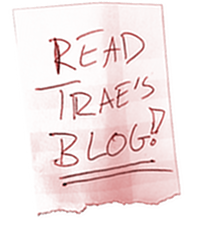| Understanding the Wiccan Rede |
|
Looking Deeply at the Core Philosophy of Wicca
 "An it harm none, do as ye will." It's only eight words. But they are eight words steeped in meaning, and they build the moral and ethical core of modern Wicca. But as in any religion, there is debate about it's meaning. What does the Wiccan Rede really mean for a Wiccan? The word "Rede" means "advice" or "counsel."1 Therein lies our first issue though: How strictly should a Wiccan adhere to a rule which is described merely as advice? To understand the answers to these questions, we must look deeper into the history surrounding the Rede. "An it harm none, do as ye will." It's only eight words. But they are eight words steeped in meaning, and they build the moral and ethical core of modern Wicca. But as in any religion, there is debate about it's meaning. What does the Wiccan Rede really mean for a Wiccan? The word "Rede" means "advice" or "counsel."1 Therein lies our first issue though: How strictly should a Wiccan adhere to a rule which is described merely as advice? To understand the answers to these questions, we must look deeper into the history surrounding the Rede.
The Rede's best known published appearance is in the final couplet of the poem "Rede of the Wiccae," usually attributed to Lady Gwen (or Gwynne) Thompson, in a 1975 issue of Green Egg.2 Thompson claimed it was written by her grandmother Adriana Porter, but since in those days so many people were claiming to be practicing "an uncovered, secret family tradition" it's highly questionable. The Rede predates this poem though (Thompson made no claim that the poem "Rede of the Wiccae" was the source of the phrase), and that origin proves much more complex.
The earliest known reference in Wicca to the rede comes from "The Old Laws/The Ordains" which were in Gerald Gardner's book of shadows by the early fifties. While the majority of this document is rather outdated, and it's authenticity has been questioned many, many times, the origins of the modern Wiccan Rede can be found in several places. One example is:So it is Ardane, that none shall use the Art in any way to do ill to any. how evermuch they have injured us. And for long we have obeyed this law. "Harm none" and nowtimes, many believe we exist not. So it be Ardane that this law shall still continue to help us in our plight. "No one, however great an injury or injustace they recieve, may use the Art in any to do ill or harm any."3 In his 1959 book Meaning of Witchcraft Gardner said it much more concisely, in reference to a literary character created by Pierre Lou˙s:"[Witches] are inclined to the morality of the legendary Good King Pausol, "Do what you like so long as you harm no one." But they believe a certain law to be important, "You must not use magic for anything which will cause harm to anyone, and if, to prevent a greater wrong being done, you must discommode someone, you must do it only in a way which will abate the harm."4 We find ourselves seeing a clear evolution to the modern Rede statement "An it harm none, do as ye will" from this. While Wicca was not born in a vacuum, and the phrase's birth is perhaps a bit more complicated1, I believe this brings us to the understanding we need.
But again, we return to the question: What does this really mean? A Rede is, again, counsel or advice. Does that mean a Wiccan needs to follow it? Well, in a sense, yes.
By labeling it as advice we understand that there is no mechanism to stop or punish a person. While many Wiccans believe in the Threefold Law or the Law of Return, this rule isn't as directly connected to the Rede as some might think. The Law of Return says that everything you put out into the world returns to you, and those who call this the Threefold Law believe it is also multiplied by three. But this Law is unintuitive. Bad things happen to good people, and good things happen to bad people. I believe that while the law of return has a direct effect on magickal activities, in real life (while it exerts some influence on events) it is not the only causing factor. This means a person could do plenty of harm in their everyday life, but any negative return could be offset by the circumstances of life.
This means then that while the Law of Return seems to enforce the Rede in magickal activities, it doesn't do much about it for physical or psychological actions. That is what makes the Rede a "counsel," because no higher power is going to directly smack you for not following it.
But does that mean anyone gets a free pass? Could someone really be a Wiccan and not follow it? I don't believe so. A Wiccan follows the Rede not because she or he is being made to follow the Rede, but because a person should follow the Rede. The concept that we do not harm one another, and live and let live is very important. It's what differentiates us from those who would hurt another in the name of their moral system. It's what differentiates us from those who would impose their ideals on another. It's what differentiates us from jackasses.
The statement "An it Harm None, do as ye will" demands that we harm none, but is this a call to pacifism? Not exactly. One must also remember that they are a person too. Allowing harm to come to yourself by not ever acting in self defense is... well, it's stupid. Likewise though, if you are doing something harmful to yourself you are also walking a fine line with the Rede. I've always seen it as though we must do our best to prevent harm as well. In a situation, we must do what causes the least net harm to all of those involved. If punching a person prevents them from beating a child, then while you have harmed the abuser, you have reduced the amount of harm in the situation.
Wiccans, just like everyone else, have free will. We follow the Rede not because someone says "Do this or I'll smack you," we follow it because it's the right thing to do. Just remember, a Wiccan acts how we should act, not how we have to act.
Footnotes
1 - It's fairly well known (and mildly embarrassing to a lot of us who aren't big fans) that prior to Gerald Gardner's founding of Wicca he was an avid reader of Aleister Crowley, and was at one time a member of the Ordo Templi Orientis.5 A famous Crowley quotation often dragged into Rede discussions is "Do what thou Wilt." 6 The wording is similar to the second half of the Rede clearly (so much so that variations of the Rede replace "Do as ye will" with "Do as thou Wilt"), and is pretty much cribbed from St. Augustine's "dilige et quod vis fac" (or "Love, and do what thou wilt") ironically enough.7 Crowley's version though is in reference to the Thelemic principle of "True Will" or path. It is effectively a demand that a person follow their destiny, and the core meaning actually has very little resemblance to the Rede's meaning. But while the meanings are so different, the wording is similar enough where, I would be remiss if I didn't mention it.
References
1 http://www.answers.com/rede
2 The Wiccan Rede Project: Rede-Poem Origins
3 Wicca for the Rest of Us: The Old Laws or The Ardanes
4 Gardner, Gerald Meaning of Witchcraft 1953 (via Wiccan Rede Project: Rede-Concept Origins)
5 http://en.wikipedia.org/wiki/Gerald_Gardner
6 http://tim.maroney.org/CrowleyIntro/Do_What_Thou_Wilt.html
7 http://www.newadvent.org/fathers/170207.htm
|



